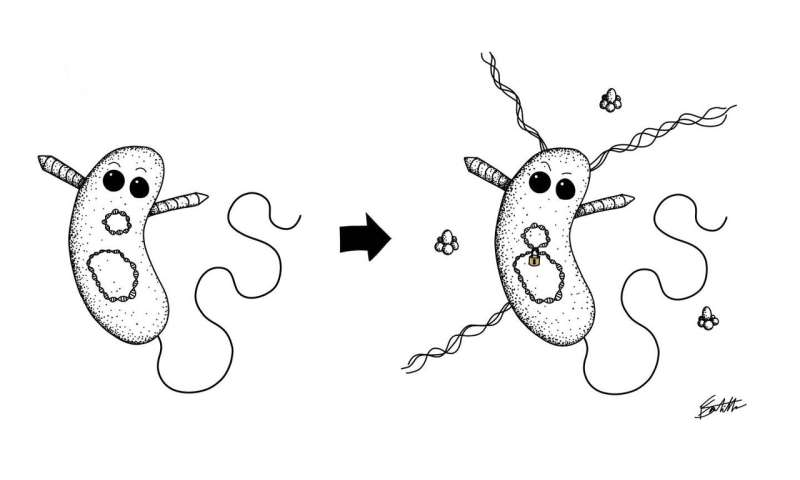#Scientists provide new insights into cholera microbe and chances of pandemic strain

“#Scientists provide new insights into cholera microbe and chances of pandemic strain”

Researchers at The City College of New York have uncovered a novel way in which Vibrio cholerae, the aquatic microbe that causes cholera, may increase its competitive fitness, and the likelihood of creating pandemic strains of the bacteria.
The finding was revealed by examining the type VI secretion system, or T6SS for short, a secretion system used by Vibrio cholerae to inject toxic proteins into neighboring bacterial cells, killing them and increasing its survival advantage. The researchers studied a gene cluster within the T6SS called auxiliary cluster 3 (Aux3). The gene cluster exists in two states: one, which is highly mobile, is found in environmental strains of V. cholerae—these do not cause disease—and a second, which is a less mobile form of the gene cluster. This second, less mobile form of the gene cluster is “locked” in the pandemic V. cholerae genome and potentially helped create the pandemic strains.
“We wanted to look at how a harmless environmental strain of Vibrio cholerae acquires the unique traits needed to become the pandemic strain of the bacteria,” said Francis J. Santoriello, from City College’s Department of Biology. “With this in mind, we located an island in the chromosome of the bacteria that only exists in the pandemic strain. Unexpectedly, we found a much larger form of the DNA island in a couple strains in the environment that seems to be jumping from one strain to another.”
Stefan Pukatzki, lead author of the CCNY study, added, “Even though we may not have a cure for cholera, this research contributes to our understanding of how these pathogens evolve and become pandemic.”
The study, “Pandemic Vibrio cholerae shuts down site-specific recombination to retain an interbacterial defense mechanism” appears in the December issue of “Nature Communications,” providing new insights into this devastating and deadly illness, which is particularly endemic in the developing world.
Small molecules control bacterial resistance to antibiotics
Francis J. Santoriello et al. Pandemic Vibrio cholerae shuts down site-specific recombination to retain an interbacterial defence mechanism, Nature Communications (2020). DOI: 10.1038/s41467-020-20012-7
Citation:
Scientists provide new insights into cholera microbe and chances of pandemic strain (2020, December 18)
retrieved 19 December 2020
from https://phys.org/news/2020-12-scientists-insights-cholera-microbe-chances.html
This document is subject to copyright. Apart from any fair dealing for the purpose of private study or research, no
part may be reproduced without the written permission. The content is provided for information purposes only.
If you liked the article, do not forget to share it with your friends. Follow us on Google News too, click on the star and choose us from your favorites.
For forums sites go to Forum.BuradaBiliyorum.Com
If you want to read more Like this articles, you can visit our Science category.

